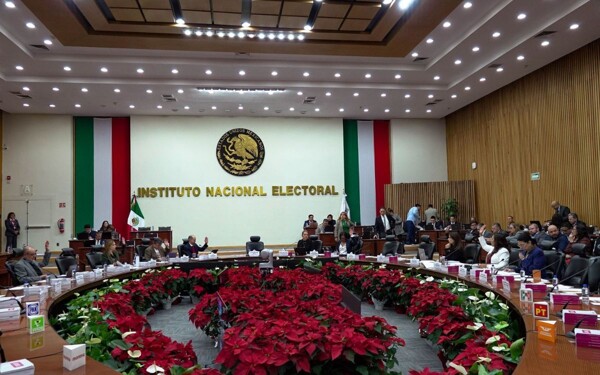
An investigation revealed the existence of a network of shell companies in Mexico that has diverted resources intended for the operation of the government and essential public services, enriching an elite through orchestrated schemes. An upward trend in contracts was observed until 2015, followed by a decrease in the subsequent years, indicating organized crime behavior.
This network consists of billing companies for simulated operations, also known as ghost companies, that operate as economic cartels involving both public and private actors seeking illicit economic benefits. Through open data analysis from the SHCP and SAT, it has been identified that at least 486 federal dependencies have established 3,529 contracts with at least 834 shell companies in the last two decades.
These business structures, linked through partners, family members, or front men, form complex networks that have hindered their detection and dismantling. Individual audits are ineffective against the organization of these networks. A comprehensive approach is required that includes a structural analysis of the public contracting system to combat corruption in these networks.
Despite efforts to centralize information in the National Transparency Platform, gaps in records and incomplete information persist, complicating the identification and sanctioning of these illicit practices. The networks of shell companies have had a significant impact on various sectors of the government, diverting public funds and violating the rights of the population.
The lack of transparency mechanisms at the state and municipal levels has facilitated the operation of these networks, as evidenced in cases such as "The Ghost Companies of Veracruz" and "Puebla, factory of ghost companies." The need for penal coordination and administrative prosecution to address this systemic phenomenon of corruption is highlighted.
The contracts with these shell companies reflect an interconnected network that encompasses much of the government institutions and simulated companies, representing a challenge for the authorities. The lack of a centralized database at the subnational level complicates the identification and dismantling of these networks at the state and municipal levels.
It is essential to adopt measures that enable greater transparency in public contracting processes at all government levels, as well as to strengthen inter-institutional cooperation to combat corruption in these networks. The identification of ultimate beneficiaries and forensic analysis are key tools to dismantle these structures of corruption that have caused a severe impact on the economy and society in Mexico.














